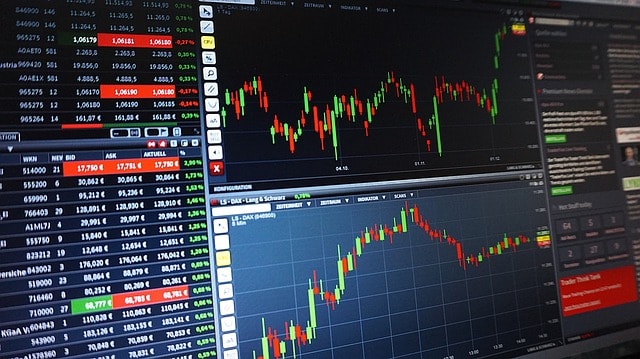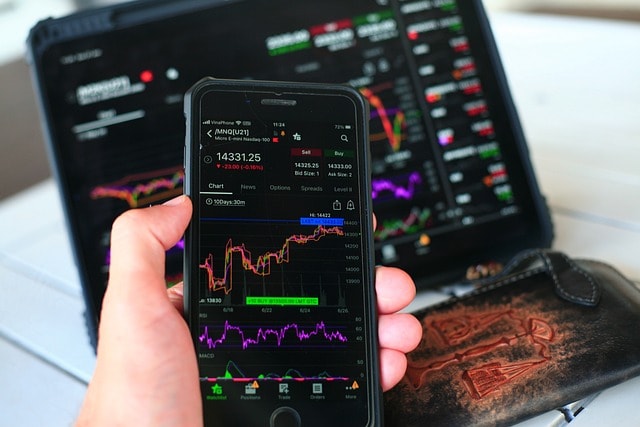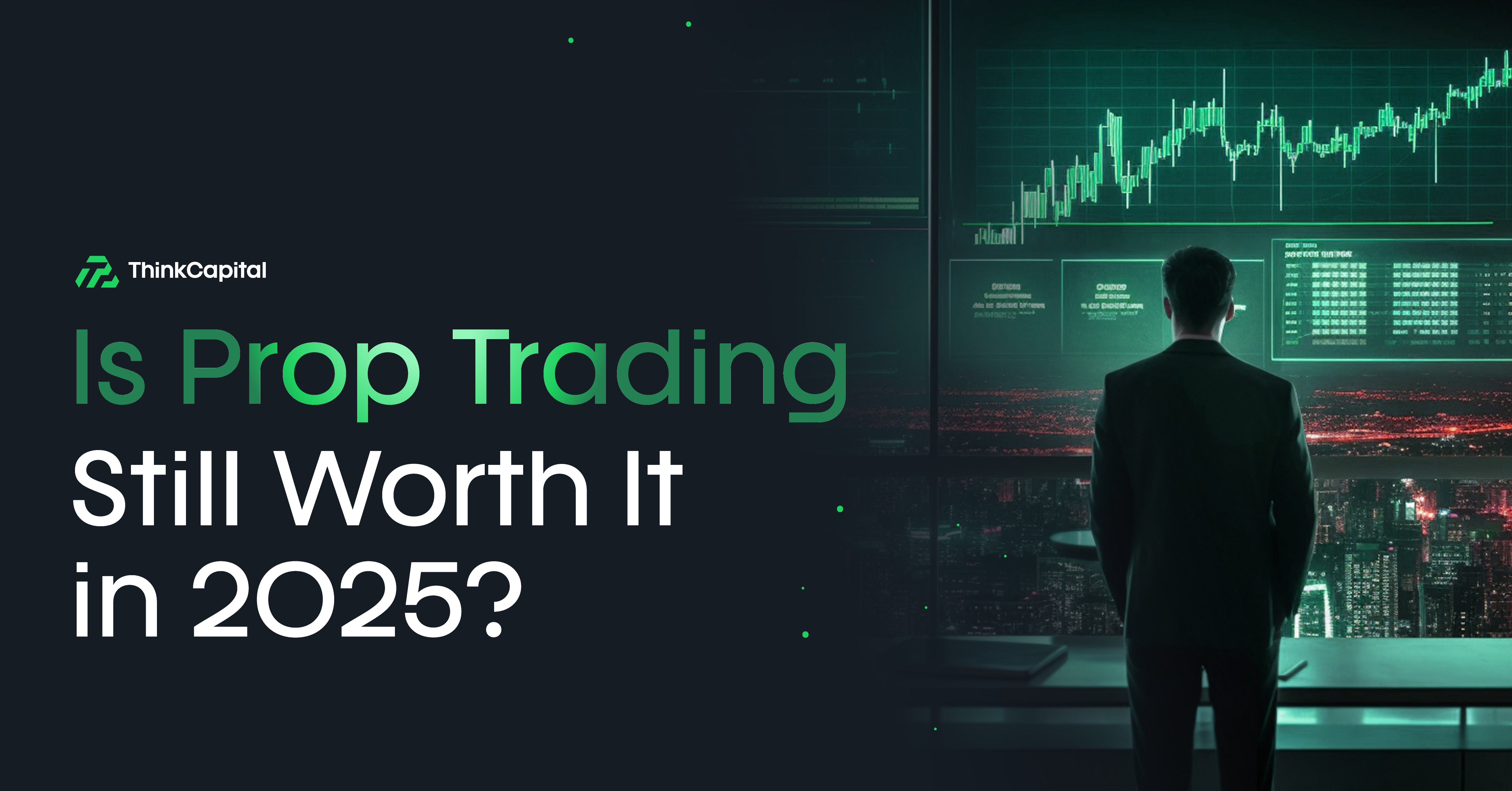When traders consider their options for growing financial success, one question often surfaces: Is prop trading still worth it in 2025? With evolving markets, stronger regulations, new trading technologies, and many prop firms entering the scene, understanding the value of a prop trading firm is more relevant than ever. Let’s address some of the most pressing concerns and help both new and skilled traders determine if proprietary trading aligns with their goals this year.
Table of contents
- What Makes Prop Trading Unique?
- Comparing Prop Trading with High Leverage Trading
- How to Choose the Right Prop Trading Firm
- The Costs Associated with Prop Trading
- Earnings Potential: How Much Can Traders Earn?
- Markets Open to Prop Traders
- Profitability and Legitimacy of Prop Firms
- The Mechanics of Prop Trading
- Risks and Rewards of Prop Trading
- Success Rates and Risk Assessment
- Conclusion: Is Prop Trading Still Worth It?
- Preguntas Frecuentes:
What Makes Prop Trading Unique?

Prop trading (short for proprietary trading) involves prop firms that provide access to firm’s capital, although virtual in many cases, in exchange for meeting specific performance metrics which in turn brings earning opportunities. Unlike trading with your own money in a personal account, you can trade directly using the funded trading account provided by the firm. This structure potentially opens doors for higher earnings without risking all of your own capital.
For successful traders, the profit-sharing model can be very enticing. Many traders who demonstrate strong trading skills can keep a significant portion of their trading profits—often through a profit split ranging between 70% and 90%—while the prop firm ensures that certain risk management rules are respected. This fair trading environment appeals to skilled traders looking to leverage resources beyond what they could obtain in a personal account.
Comparing Prop Trading with High Leverage Trading

A major decision for many traders is choosing between many prop firms versus using high leverage from a broker. While leveraging your own money can yield bigger returns in a short period, it also greatly increases personal risk, especially if there is a maximum drawdown.
By contrast, most prop firms enforce strict risk management policies and set trading restrictions—like a defined loss limit—to help you manage risk effectively. They also provide larger funded accounts allocations. For example, a funded account might start with five thousand dollars (or significantly more), allowing you to trade confidently without jeopardizing your personal savings. With ThinkCapital, you can get to a $300,000 funded account which grants you even more access to bigger earning opportunities. This structured approach helps traders succeed in the long run, rather than chasing quick gains.
How to Choose the Right Prop Trading Firm
Selecting the best prop trading firm is a critical step that can shape your entire trading journey. While most prop firms provide a funded account, strong risk management rules, and various trading restrictions, not all companies are created equal. Here are a few factors to consider:
- Challenge Fee and Evaluation Process
- Compare the challenge fee structures and the rigor of each firm’s evaluation process. Look for transparency in the challenge requirements, such as daily loss limit or maximum drawdown levels.
- Prioritize a firm that outlines clear risk management policies and sets realistic profit targets so you can start trading with a balanced approach.
- Profit Split and Scaling Plans
- An attractive profit split is important, but also pay attention to whether the firm offers scaling opportunities. This can help skilled traders grow from a modest funded account to managing more firm’s capital over time.
- Confirm how quickly you can receive payouts, as timely profits can bolster your confidence and ability to reinvest in your strategy.
- Advanced Tools and Platform Support
- Does the firm offer advanced tools, like TradingView charts or Traders’ gym to backtest strategies? Tools that are easily integrated with your chosen platform or provide helpful add ons can streamline your trading process.
- A user-friendly interface and robust analytical features often enable traders to execute trades efficiently and manage their positions more effectively.
- Educational Resources
- Prop firms differ in the support they offer. If you’re looking to sharpen your trading skills, choose a firm that provides interviews, webinars, and a vibrant discord community.
- Access to a fair trading environment plus ongoing feedback can significantly boost your odds of success.
By conducting thorough research and weighing these factors, you can find a prop trading partner that aligns with your risk tolerance, profit aspirations, and strategic goals—ultimately increasing your chances of becoming one of the successful traders who thrive in this industry.

The Costs Associated with Prop Trading

Before joining a prop trading firm, it’s important to note that most companies charge a challenge fee or evaluation fee, which grants you access to an evaluation process. Passing the evaluation or challenge typically unlocks a funded account with a specific starting balance, giving you the ability to execute trades using the firm’s resources.
While the challenge fee or evaluation process may seem like a hurdle, the cost is often minimal compared to the large funded account you can access afterward. Firms like ThinkCapital clearly outline their fees, ensuring no hidden charges. This transparency allows traders to focus on hitting profit targets and adhering to risk management policies.
Earnings Potential: How Much Can Traders Earn?
In prop trading, your earnings hinge on performance. Successful traders who meet profit targets can receive substantial payouts, sometimes up to 90% of their trading profits. For example, ThinkCapital’s profit split policy rewards consistent performance by allowing traders to receive payouts promptly.
Because many prop firms place no cap on trading profits, there’s theoretically no limit to how much you can earn. Some firms also offer scaling plans, where traders can increase their funded account size over time. This means that skilled traders aren’t restricted to a small funded account allocation. As you build trust and consistency, you can start trading bigger positions and significantly grow your earnings potential.
Markets Open to Prop Traders

One major appeal of prop trading is access to a diverse range of markets. Most prop firms let you trade forex, crypto, commodities, and even metals, giving you the freedom to capitalize on varied market conditions. This diversification allows you to spread risk and experiment with multiple strategies. If you’re a fan of news trading, EAs trading or prefer trading directly on TradingView charts, ThinkCapital offers advanced tools and add ons to help you manage your positions efficiently and trade confidently.
Profitability and Legitimacy of Prop Firms
Legitimate prop firms operate on a model that benefits both the firm and the trader. They offer skilled traders the chance to manage significant funded accounts after they have passed the evaluation phase. Strong risk management rules ensure the firm remains financially sound, and traders operate in a fair trading environment.
Leading prop trading companies, such as ThinkCapital, place a high priority on risk management and trader consistency. They often provide support through a top notch support team, webinars, an impressive discord community, and clear risk management policies, helping you hone your trading skills and succeed over the long haul.
The Mechanics of Prop Trading
The prop trading journey usually starts with a challenge or evaluation process. You trade in a demo or simulated environment to prove you can follow risk management guidelines—such as a strict loss limit or maximum drawdown—and still meet profit targets. Once you pass, you get a funded account where you trade directly with a funded account.
Firms like ThinkCapital have robust payout schedules and often pay traders quickly once they reach their profit milestones. This quick turnaround can increase confidence and motivation, further strengthening the trust between trader and prop company.
Risks and Rewards of Prop Trading
While the rewards of prop trading can be substantial, the endeavor isn’t without risk. Breaching risk management thresholds—like exceeding a maximum drawdown—could result in losing the funded account or the challenge account. However, many firms mitigate these challenges through educational resources, support networks, and clear risk management policies.
Additionally, many traders find the structured environment a significant advantage over trading their personal account. By trading with a prop firm, you limit your personal risk while gaining access to professional tools, networking opportunities, and sometimes even news trading features. This balanced approach between risks and rewards makes prop trading a compelling option for disciplined individuals.
Success Rates and Risk Assessment
Success within prop trading varies. However, disciplined traders using proven trading skills and strategies have the highest likelihood of achieving consistent profits. Most prop firms offer demo phases, allowing skilled traders to refine their approaches before going live. ThinkCapital offers a free trial where you can try the platform for free and familiarize yourself with risk management rules and profit targets.
By tracking factors like daily loss limits, maximum drawdown, and trading restrictions, traders can more effectively manage risk. Over time, maintaining discipline, targeting realistic profit goals, and leveraging the firm’s advanced tools can significantly impact how well traders adapt to different market conditions.

Conclusion: Is Prop Trading Still Worth It?
In 2025, prop trading remains a viable path for traders seeking substantial funded accounts and professional growth. With diverse market access, fair profit split models, and supportive environments, prop firms like ThinkCapital still offer unmatched opportunities for those willing to put in the work.
Whether you’re weighing trading with high leverage, comparing the costs of challenge fees, or evaluating personal risk vs. firm-funded accounts, prop trading continues to hold significant value in the modern world of trading. For skilled traders committed to a disciplined trading journey, the potential to make so much money and trade confidently is well within reach.
Preguntas Frecuentes:
Q. What are the downsides of prop trading?
The main downside includes the possibility of losing your funded account if you surpass the maximum drawdown or loss limit. Some traders also find it stressful to adhere to trading restrictions and profit targets within a short period. However, for skilled traders who can manage risk effectively, these downsides are often outweighed by the benefits of larger funded account allocations and professional support.
Q. How much does the average prop trader make?
Trading profits vary widely based on trading skills, market conditions, and how well traders stick to risk management guidelines. An “average” prop trader might make a moderate return each month, but successful traders with consistent performance can make thousand of dollars or even more. With profit split percentages often between 70% and 90%, even moderate gains can accumulate quickly.
Q. Is prop trading a good career?
For skilled traders looking to leverage significant firm’s funded accounts without risking too much of their own money, prop trading can be an excellent career path. It offers a fair trading environment, a robust support system, and potential for large profits. Many people find it appealing because they can trade globally, trade directly from almost anywhere in the world, and refine their trading skills with minimal personal risk.
Q. Can you make a lot of money prop trading?
Yes, you can potentially make so much money through prop trading if you maintain disciplined trading skills, meet profit targets, and follow risk management policies. With a high profit split and scaling options, the earning potential is substantial—especially for successful traders who can consistently outperform the market.
Disclaimer:
Trading involves high risk, and retail investor accounts can lose money rapidly due to leverage. This article is for educational purposes only and should not be considered financial advice. Always do your own research and consider your financial situation before making any investment decisions. Effective risk management is essential in Forex trading to protect your capital and manage risk appropriately.






